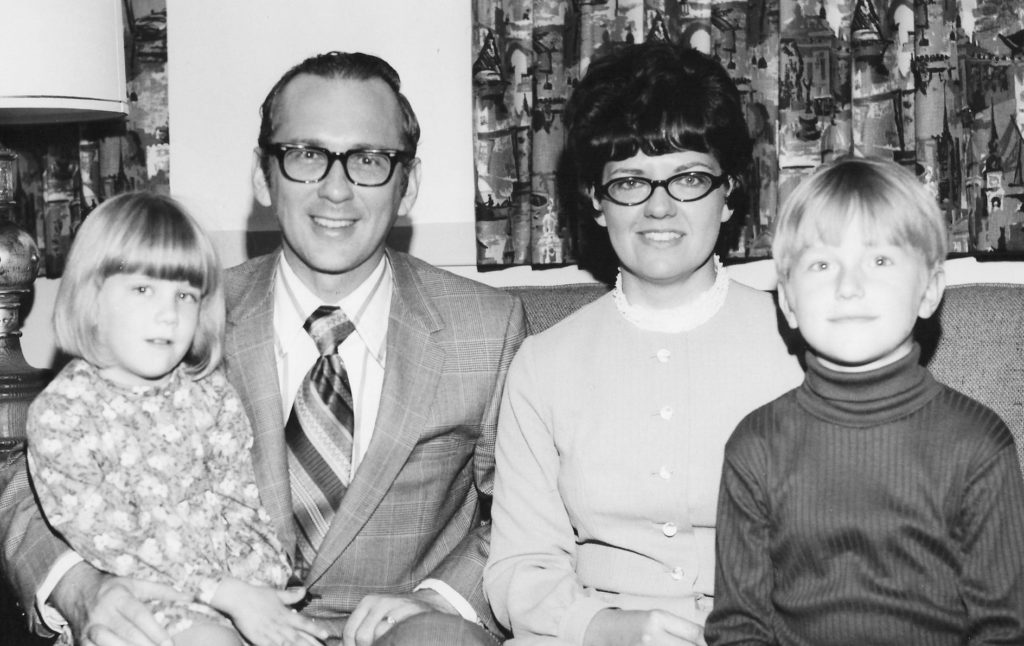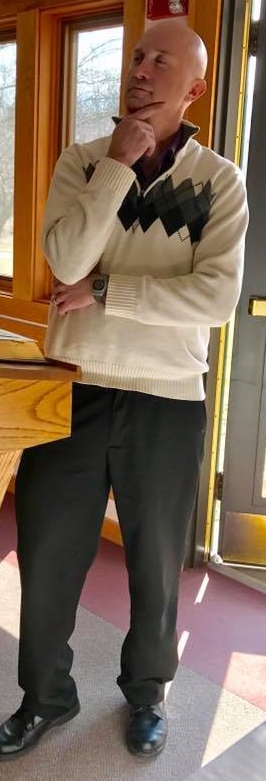
This is an actual photo of one of our children’s bedrooms. I won’t mention which child it was to protect Lexi’s identity.
In my previous post, I talked about how parents need to determine which household expectations are essential and which are optional. In this post I’m going to share two of our “Minors” that may surprise you. But before I do, please note that I’m not suggesting that our “Minors” should be yours. Every set of parents needs to determine what they can live with and what is necessary for the well-being of the family and sanity of the parents. That said, here are two of our “Minors”…
BEDROOM TIDINESS. We chose to make bedroom tidiness a “Minor” in our home. We opted to never have a battle over the condition of our kids’ rooms. We gave them the privilege and the responsibility to organize and manage the stuff in their rooms however they wanted. The only stipulations were that there could be no dirty dishes or food crumbs left in the room, and any dirty clothes they wished to be laundered had to be put in the hamper in our bedroom. Other than that, they had complete creative control over the condition of their rooms. And our girls were creative!
[It’s important to note that this rule –or lack thereof — pertained only to their bedrooms. They were still expected to keep the common areas of our house picked up and had to take care of any messes they made throughout the house. Keeping our common living space picked up was a “Major!”]
Now I can imagine that some of you reading this might take issue with our lackadaisical bedroom policy and push-back as follows…
- This teaches them to be sloppy people. Perhaps, but we’d rather have sloppy kids that we enjoy being around than kids who resent us for constantly nagging them to clean their rooms. And in our experience, the sloppiness of their rooms didn’t spill over into other areas of their lives: schoolwork, musicianship, work ethic, and doing ministry.
- Kids like yours won’t learn how to clean and be tidy. They were required to keep the rest of the house tidy, so they did learn cleaning and organizing skills! But we wanted them to practice managing their own lives, organizing their rooms when it was important to them. We found that there were two main situations that motivated them to be clean and tidy: 1.) When they were sick of their mess or frustrated by not being able to find the important things they had buried. Failure is a good teacher! When this happened they would sometimes go on a self-imposed cleaning binge until their rooms were immaculate! This always gave them a peaceful and satisfying feeling! 2.) When friends or guests were coming over and they would feel too embarrassed to have them see their messy rooms. Positive peer pressure at its best!
- Won’t this teach them disrespect for others? Making bedroom clutter a “Minor” worked for us because our girls had their own rooms so their mess didn’t affect anyone else. But because respect was a “Major” value in our home they entered college prepared to keep their dorm rooms tidy out of respect for their roommates.
- How could you parents tolerate living with that mess in your house? Honestly, sometimes we closed the door — out of sight, out of mind! At other times we stood at the door and chuckled at the sight, We chose to view it as entertaining rather than annoying. Sometimes we’d ask, “How’s that working for you?” We made it their problem, not ours.
CLOTHING CHOICES. We also chose to never have a battle over clothing with our girls (as long as they were modest). From a very young age (3 or so) we let them choose their own outfits and only rarely would we regulate what they wore (e.g. family pictures, holiday attire, weddings, funerals, etc.) This meant that we sent them off to school and church wearing what they felt like wearing, which may or may not have matched the fashion etiquette of the day! We figured it was good for them to choose their attire as a way to express their individuality. This encouraged them that it was ok to be themselves. As they grew older and more aware of social norms it also forced them to make decisions on how “conforming” to their peer group they wanted to be.
Let me illustrate this “Minor” with one of my favorite stories about Bren.*
It was a blizzardy, mid-winter Sunday morning and church should have been cancelled, but wasn’t. I had gone ahead to church already, but Cindy was still at home getting herself ready with our three-year-old daughter, Bren. Bren had chosen her church outfit for the day: a dressy plaid skirt, a red, tattered, Micky Mouse sweatshirt, and flipflops! Making mention of the frigid temperatures and pointing out the blankets of descending snow outside, Cindy advised Bren that it might be a better choice to join her in wearing boots rather than flip-flops. But Bren’s mind had been made up — she was determined to wear those flip-flops!
Rather than engage in a potentially lengthy and emotional battle with a strong-willed child over footwear, Cindy wisely decided to drop the issue completely, and began loading up the car and heading to church.
The trek through the snowy church parking lot to the front door provided the perfect teachable moment for Bren. By the time they got inside Bren’s feet must have been absolutely miserable, although she tried hard not to show it.
One thing we do know, however: never again did Bren choose to wear flip-flops in a blizzard!
So what was Cindy’s biggest challenge that cold morning? It wasn’t Bren or her footwear choice. It was the awareness that other moms might judge her as being a bad mom because she allowed her three-year old go to church in a blizzard in flip-flops. Her concerns were well founded — in fact, just recently, a woman admitted to having done just that on that fateful morning. But rather than feel guilty, Cindy knows that she did what was best that day: avoiding a needless battle, letting Bren learn from her mistake, and arriving at church in a joyful mood!
I couldn’t agree more! Now read the Final Post in this series on Majors and Minors.
[Note: flip-flops in the winter was a “Minor” in this case because it only involved Bren having to walk across a snowy parking lot. If she would have been walking to school or watching a parade for an hour, that would have been a different scenario. Having to amputate frostbitten toes pushes the issue into the “Major” category!]
* the stories and photo above are used with my kids’ permission!



 And when Christians fall, it’s doubly scandalous. We all know of those who claimed to be followers of Jesus whose hidden sins were embarrassingly exposed. Jesus himself, spoke out strongly against religious people who pretended to be Godly on the outside — while being corrupt on the inside. “White washed tombs” he called them.
And when Christians fall, it’s doubly scandalous. We all know of those who claimed to be followers of Jesus whose hidden sins were embarrassingly exposed. Jesus himself, spoke out strongly against religious people who pretended to be Godly on the outside — while being corrupt on the inside. “White washed tombs” he called them.
 Very few of you know the story I’m about to tell. But before I do, I have to show a picture of what Cindy and I looked like back in 1992. We were 28. We were young and in love. Now we’re just old and in love! And we have less hair!
Very few of you know the story I’m about to tell. But before I do, I have to show a picture of what Cindy and I looked like back in 1992. We were 28. We were young and in love. Now we’re just old and in love! And we have less hair! He had mentally left us on the aptly named “Black Friday,” but it took nine more days for his body to concede. He was resting comfortably under Hospice care when he took his final breath.
He had mentally left us on the aptly named “Black Friday,” but it took nine more days for his body to concede. He was resting comfortably under Hospice care when he took his final breath.


 You’ll note that for the first year or so, it seems the parent has zero control — indeed the child controls the parents! The baby cries: the parent feeds him. The child poops: and the parent rushes to change the diaper! Like it or not, that’s how it works!
You’ll note that for the first year or so, it seems the parent has zero control — indeed the child controls the parents! The baby cries: the parent feeds him. The child poops: and the parent rushes to change the diaper! Like it or not, that’s how it works!
